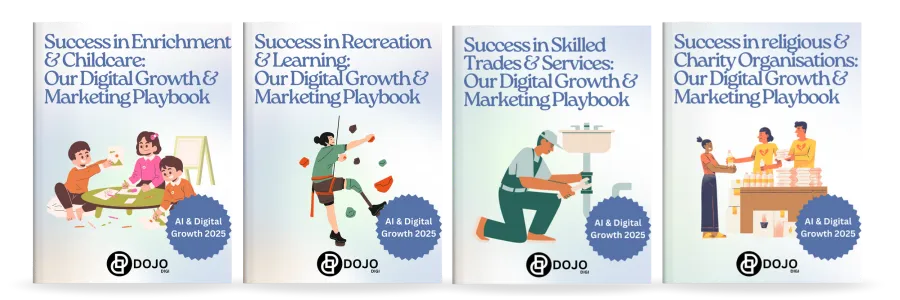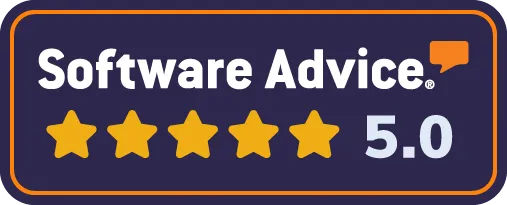
CRM & Sales Management: The Backbone of Small Business Growth
In the vibrant world of small to medium enterprises (SMEs) and local businesses, growth is the ultimate goal. Yet, achieving sustainable growth requires more than just a great product or service; it demands a strategic approach to managing customer relationships and sales processes. This is where Customer Relationship Management (CRM) and Sales Management come into play. These tools are not just about keeping track of contacts; they are about building meaningful relationships, optimizing sales processes, and ultimately driving business success. In this blog post, we'll explore the transformative power of CRM and Sales Management, backed by research and real-world examples.
The Importance of CRM & Sales Management
1. Centralized Customer Information
At the heart of any CRM system is the ability to centralize customer information. This means having all your customer data—contact details, purchase history, preferences, and interactions—in one place. According to a study by Nucleus Research, CRM applications can increase sales productivity by 14.6% by providing easy access to customer information.
For SMEs, this centralized approach means no more scattered spreadsheets or lost emails. Instead, your team can access up-to-date information at any time, ensuring that every customer interaction is informed and personalized.
2. Enhanced Customer Relationships
Building strong customer relationships is crucial for any business, and CRM systems are designed to do just that. By tracking customer interactions and preferences, CRM systems enable businesses to deliver personalized experiences that resonate with their audience. A report by Salesforce found that 79% of business buyers say it's crucial to interact with a salesperson who is a trusted advisor.
For small businesses, this means using CRM data to tailor communication, offer personalized recommendations, and anticipate customer needs. This level of personalization fosters trust and loyalty, turning one-time buyers into repeat customers.
3. Streamlined Sales Processes
Sales management tools within a CRM system help streamline the sales process, from lead generation to deal closure. Features such as sales forecasting, pipeline management, and performance analytics empower sales teams to make data-driven decisions and identify opportunities for improvement.
According to CSO Insights, companies with a formal sales process see a 28% higher win rate compared to those without one. By implementing a structured approach to sales management, SMEs can increase their chances of success and achieve sustainable growth.
Integrating CRM & Sales Management with Other Business Tools
To maximize the impact of CRM and Sales Management, it's essential to integrate them with other business tools. Let's explore how combining CRM with email marketing, workflow automation, and reporting and analytics can enhance your overall business operations.
Email Marketing: Personalizing Communication
Integrating your CRM system with email marketing tools allows you to leverage customer data for more effective campaigns. By syncing contact information and interaction data, you can create highly personalized and relevant email content.
Research by Campaign Monitor shows that personalized emails improve click-through rates by an average of 14% and conversions by 10%. By using CRM data to segment your audience and send targeted emails, you can enhance engagement and drive action.
Workflow Automations: Boosting Efficiency
Workflow automation can significantly enhance the efficiency of your CRM and sales management efforts. By automating repetitive tasks, such as follow-up emails, lead scoring, and task assignments, you can save time and ensure consistent communication with your audience.
A report by McKinsey found that businesses that implement automation see a 10-30% increase in revenue within six to nine months. By integrating workflow automation with your CRM system, you can create sophisticated and timely interactions that drive results without manual intervention.
Reporting & Analytics: Measuring Success
To continuously improve your CRM and sales management efforts, it's essential to monitor and analyze your performance. By integrating CRM with reporting and analytics tools, you can track key metrics, such as sales performance, customer satisfaction, and engagement rates, to gain insights into what's working and what needs improvement.
A study by McKinsey found that data-driven organizations are 23 times more likely to acquire customers, six times as likely to retain customers, and 19 times as likely to be profitable. By leveraging analytics, you can optimize your CRM strategies and ensure that your efforts are aligned with your business goals.
Best Practices for Implementing CRM & Sales Management
To harness the full potential of CRM and Sales Management, it's essential to follow best practices that ensure your implementation is effective and aligned with your business goals. Here are some key tips to keep in mind:
1. Choose the Right CRM System
There are numerous CRM solutions available, each with its own set of features and capabilities. Choose a system that aligns with your business needs and integrates seamlessly with your existing tools. Popular options like Salesforce, HubSpot and Zoho CRM might not be the most suited for local businesses here in Singapore as they fail to understand the localised needs and unique requirements SMEs here face. This is where DOJODIGI comes into play. DOJODIGI is a Singapore company providing advanced CRM, automation and marketing features with localised support and consultancy that SMEs need.
2. Train Your Team
Implementing a CRM system can be a significant change for your team. Provide comprehensive training and support to ensure that everyone understands how to use the system effectively. Encourage open communication and feedback to address any concerns or challenges.
3. Customize Your CRM
Every business is unique, and your CRM system should be customizable to meet your specific needs. Ensure that the solution you choose allows for tailored workflows, custom fields, and personalized dashboards.
4. Monitor and Analyze Performance
To continuously improve your CRM and sales management efforts, it's essential to monitor and analyze your performance. Track key metrics, such as sales performance, customer satisfaction, and engagement rates, to gain insights into what's working and what needs improvement.
Use this data to optimize your CRM strategies and ensure that your efforts are aligned with your business goals.
5. Foster a Customer-Centric Culture
CRM and sales management are not just about technology; they're about fostering a customer-centric culture that prioritizes customer satisfaction and engagement. Encourage your team to focus on delivering exceptional service and building strong relationships with customers.
Conclusion
In the competitive landscape of SMEs and local businesses, CRM and Sales Management are the backbone of growth and success. By centralizing customer information, enhancing relationships, and streamlining sales processes, these tools can transform the way you do business.
Integrating CRM and Sales Management with other business tools, such as email marketing, workflow automation, and reporting and analytics, can further amplify their impact and create a cohesive and efficient business operation.
Remember to follow best practices, such as choosing the right CRM system, training your team, customizing your CRM, monitoring performance, and fostering a customer-centric culture, to ensure your CRM and sales management efforts are effective and aligned with your business goals.
With the right approach and tools, CRM and Sales Management can transform your business, driving growth, efficiency, and customer satisfaction. So, don't overlook these powerful tools—embrace CRM and Sales Management and unlock your SME's full potential.











